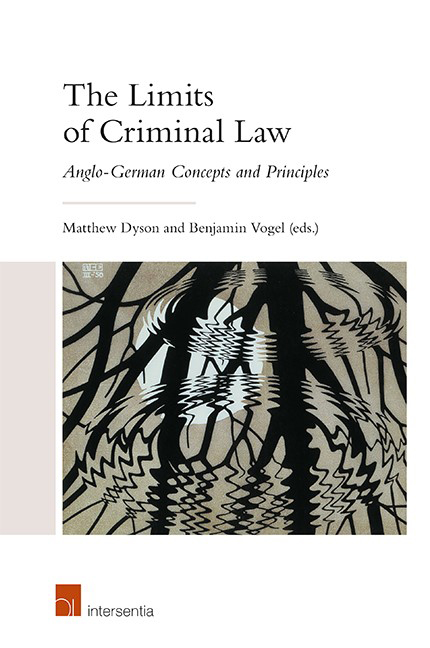Book contents
- Frontmatter
- Preface
- Contents
- List of Cases
- List of Abbreviations
- List of Contributors
- Chapter 1 Introduction
- PART I CORE PRINCIPLES OF CRIMINAL LAW
- PART II CRIME AND TORT
- PART III CRIME AND MEDICAL
- PART IV CRIME AND REGULATION
- PART V ADMINISTRATIVE SANCTIONS
- PART VI ALTERNATIVE ENFORCEMENT
- PART VII COUNTER-TERRORISM
- PART VIII CRIME AND INTELLIGENCE
- PART IX CONCLUSION
- Index
- About the Editors
Chapter 13 - Crime and Regulation Compared: The Limits of Criminalisation
Published online by Cambridge University Press: 11 February 2021
- Frontmatter
- Preface
- Contents
- List of Cases
- List of Abbreviations
- List of Contributors
- Chapter 1 Introduction
- PART I CORE PRINCIPLES OF CRIMINAL LAW
- PART II CRIME AND TORT
- PART III CRIME AND MEDICAL
- PART IV CRIME AND REGULATION
- PART V ADMINISTRATIVE SANCTIONS
- PART VI ALTERNATIVE ENFORCEMENT
- PART VII COUNTER-TERRORISM
- PART VIII CRIME AND INTELLIGENCE
- PART IX CONCLUSION
- Index
- About the Editors
Summary
What characterises criminal conduct? Few questions have more obvious relevance when inquiring into the limits of criminal law, yet answers are far from evident. The introductory pair of chapters of this volume already briefly addressed limits on criminalisation in both jurisdictions and indicated that, at least at the level of constitutional law, Parliament enjoys broad discretion. The preceding pair of chapters further investigates this topic by looking at what limits to substantive criminal law might be implicit in how the criminal law operates, even if these limits are not formulated as such by constitutional law. To this end, the two chapters look at the relationship between criminal law and regulatory law, the latter being an area of law where legislative recourse to the criminal law is, for various reasons, often controversial. Regulation is here understood as sets of norms that the state uses to organise particular sectors of social life, providing conditions which individuals or private legal entities need to meet in order to operate within that particular sphere. In addition to a set of norms governing the behaviour of the private operators, regulatory regimes will normally include regulatory agencies which organise operations though measures such as licences, prohibitions and supervisory controls. To enforce regulatory norms, the state will often make use of sanctions. Two questions then arise: first, whether such sanctions are or should be part of the criminal law; and second, whether regulation is or should, alternatively or complementarily, be enforced through some kind of non-criminal sanctions, that is a sanctions regime outside the criminal law the function and principles of which might (partially) differ from the criminal law. Both questions presuppose criteria to distinguish criminal from non-criminal wrongdoing and thereby inquire into the very core of criminal law's normative identity.
WHAT THE LIMITS ARE LIMITING
In trying to understand the normative limits applied within criminal law and regulation, we face a problem. At first glance the two jurisdictions are somewhat unlikely comparators for the question at hand, for only German law formally recognises a distinct category of non-criminal regulatory offences.
- Type
- Chapter
- Information
- The Limits of Criminal LawAnglo-German Concepts and Principles, pp. 263 - 270Publisher: IntersentiaPrint publication year: 2020



